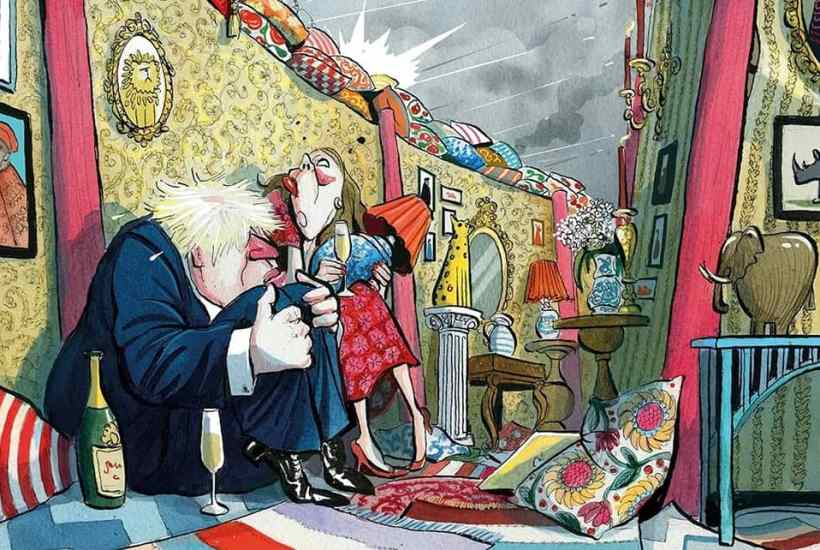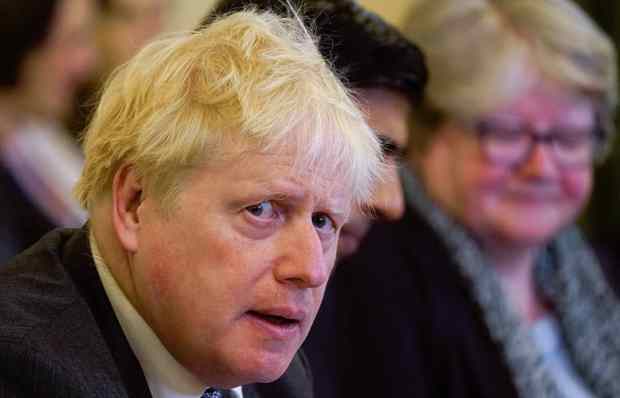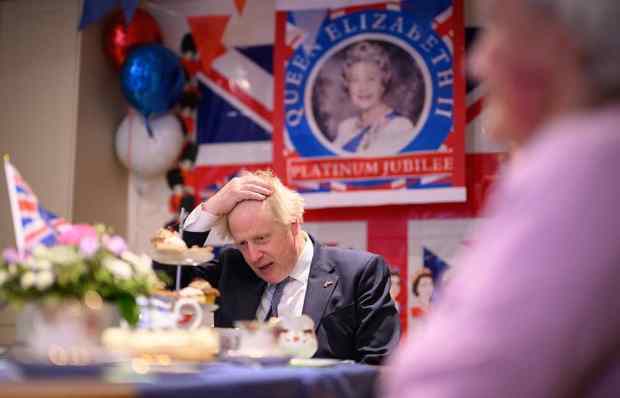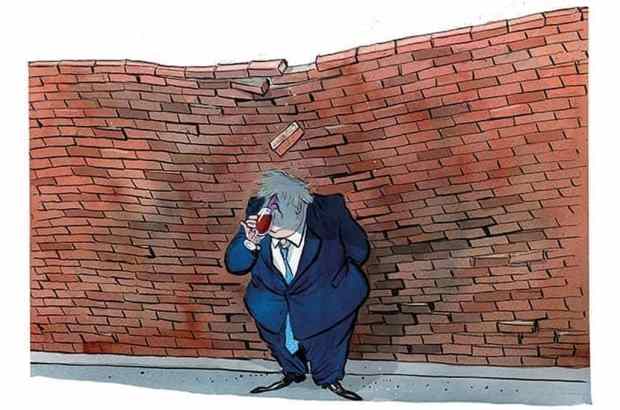Boris Johnson has been plunged back into the mire of partygate. The publication of a photograph of Johnson raising a glass to his departing communications chief Lee Cain in November 2020 and the long-awaited report by Sue Gray into lockdown breaches in Whitehall means that once again there are Tory MPs publicly calling for him to resign. Some of those who had gone quiet on the basis that the war in Ukraine meant it was not the right time for a leadership election have renewed their calls for the Prime Minister to go.
No. 10’s hope is that apologies and an emphasis on how the new Department of the Prime Minister is meant to professionalise Downing Street will be enough to persuade backbenchers to stay their hands. Johnson’s loyalists will make much of Gray’s statement that some of her recommendations on how to better organise Downing Street are already being acted upon. But the worry for Johnson is that the Gray report, which was less bad for Downing Street than many had expected, is still not the end of the matter – there is the investigation by the privileges committee to follow. As one senior backbencher laments: ‘It is just very hard to see how this ends.’
Johnson’s closest allies have been most worried about the parliamentary inquiry into whether the Prime Minister misled parliament or not. The very fact that the inquiry is happening reveals how dangerous it is for him. The government had hoped to defer the decision on whether to have the investigation until after the police and Gray had reported, but Tory MPs would have refused to vote for that. They might not be prepared to oust the Prime Minister, but they also want to indicate that they do not support what went on. The MPs on the privileges committee will have to vote on a report into whether Johnson did or did not mislead parliament, and on whether, if he did so, it was deliberate or not. One Johnson ally frets that he ‘cannot see a friend on that committee’.
The best Johnson can hope for from the privileges committee is a rebuke for not having corrected the record earlier when it became clear that there had been rule breaches in Downing Street. If the conclusions are any more damning than that, then he will be in an almost impossible position. One former cabinet minister who thinks Johnson should go says that although the parliamentary party doesn’t have ‘much of a spine’, Tory MPs couldn’t accept Johnson staying in his post if the committee concludes he deliberately misled the House.
Even without partygate, the next few months will be hard for Johnson. Inflation is making nearly everybody poorer. The squeeze on discretionary household spending being caused by rising energy prices could be enough on its own to tip the country into recession.
‘The cost-of-living crisis has only just begun,’ warns one No. 10 source. The price of food is going to spike significantly in the coming months. Andrew Bailey, the Bank of England governor, might have been foolish to describe the coming increases as ‘apocalyptic’, since the line was unhelpful to consumer confidence, but he was not wrong.
The government can take measures to try to help people with rising prices. But even before last month’s energy price hike the government had spent £9 billion on trying to help households to deal with the raised energy price cap. This support provided little respite from demands for the government to do more. The test for the support package the Treasury is working on is not just whether it eases the pressure on the poorest households but whether it is politically sustainable, whether it can hold until the autumn Budget.
The coming public sector pay settlements promise to be particularly difficult. They will be lower than inflation, and so constitute a pay cut in real terms. In the tight labour market, this will further increase staffing pressures and make it harder to deal with the backlogs caused by Covid and lockdowns.
Parties, inflation and scandal make a bad backdrop to the two by-elections due to take place next month in Wakefield in Yorkshire and Tiverton and Honiton in Devon. The two seats are very different. The Tories took Wakefield from Labour in 2019 for the first time since 1931. By contrast, the Tories have held Tiverton and Honiton since the seat’s creation in 1997, and have a 24,000 majority there. But many Tories are expecting to lose both seats, which would instil fear in MPs in both traditionally Labour seats that recently turned blue and those in classically Tory rural areas. The fact that Labour and the Liberal Democrats can concentrate their resources while the Tories are having to fight on two fronts will worsen these worries.
Of course, there are unique circumstances in both of these seats. It would be extremely odd for a party to hold a marginal seat where its MP had been sentenced to 18 months for sexual assault of a minor. And even a safe seat becomes vulnerable when the previous MP resigns because of a scandal, in this case for watching pornography in the Commons chamber. But losses at both ends of the Tory voting coalition will lead to a lot of nervous MPs. They will look at the swings in the two seats and calculate what it means for their own prospects. The worry for No. 10 is that there may well be more by-elections in the coming months. Regular by-election defeats will make the parliamentary party particularly skittish.
In recent months, Johnson’s new No. 10 set-up has had something of a honey-moon. Backbenchers approved of its more political focus, and Johnson benefited from the fact the government has undoubtedly shown leadership on Ukraine. Yet, as one cabinet minister complains, the government still ‘hasn’t got a defining mission’. The lack of a domestic agenda means that the government doesn’t have a sense of purpose it can draw on to provide stability in a crisis. No. 10 will now have some of the most difficult months to weather that any government has faced, and it will have to do so with limited political capital.
Got something to add? Join the discussion and comment below.
Get 10 issues for just $10
Subscribe to The Spectator Australia today for the next 10 magazine issues, plus full online access, for just $10.
You might disagree with half of it, but you’ll enjoy reading all of it. Try your first month for free, then just $2 a week for the remainder of your first year.















Comments
Don't miss out
Join the conversation with other Spectator Australia readers. Subscribe to leave a comment.
SUBSCRIBEAlready a subscriber? Log in